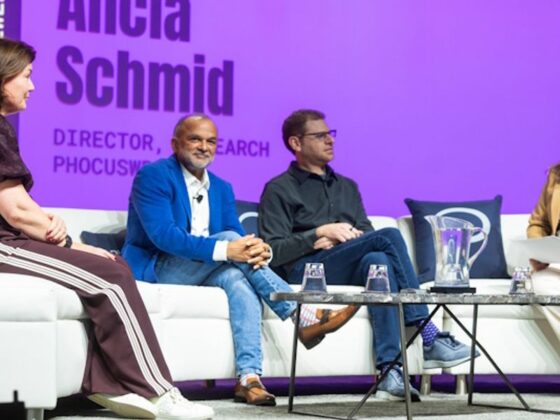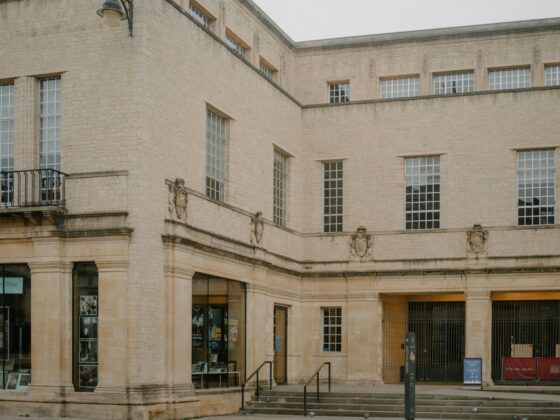
Understanding guests’ communication preferences and engaging on their terms is the key to elevating your hotel’s upselling strategy. From email and SMS to front desk conversations, learn how a multi-channel approach and data-driven technology can improve guest satisfaction, increase revenue, and create memorable experiences that set your hotel apart.
Engage Guests on Their Terms: The Key to Effective Upselling
A guest walks through your hotel’s doors, tired after a long flight and ready to unwind. They might be open to an upgrade or special offer—but how do you get their attention? Should you send an email, offer a deal at the front desk, or reach out via text?
The answer is, it depends on the guest.
Understanding how guests prefer to communicate is the key to upselling effectively. Whether it’s through digital channels or traditional face-to-face interactions, here are five reasons why a multi-channel strategy is the best way to improve engagement and, ultimately, your bottom line.
1. Digital and Mobile Channels On the Rise
Earlier this year, Plusgrade, a global leader in ancillary revenue solutions for the travel industry, surveyed 2,000 active hotel guests in six regions to understand their travel preferences and behavior. The data tells a compelling story about how today’s guests like to learn about upgrades and special offers—and what you can do to meet them where they are.
When it comes to communication, email (51% of respondents) and front desk conversations (49%) still top the list of preferred channels. But the data shows newer digital channels like WhatsApp, SMS, and even in-room communications growing in popularity.
Nowhere is this trend more evident than among younger demographics, with guests aged 18 to 34 more likely to prefer text and SMS (4% above the group average), app notifications (6% above average), and in-room communications like QR codes and TV welcome screens (8% above average). The youngest segment of guests is more than twice as likely to prefer in-app and in-room communications compared to guests aged 65 and older. The older group shows a strong preference for email communication, with 58% favoring this method—the highest percentage among all age groups.
This shift signals a growing demand for faster, more direct communication. If you want to connect with younger guests and elevate your upsell game, it’s time to lean into digital and mobile-friendly channels to match the expectations of tech-savvy travelers.
2. Regional Communication Preferences Matter
Preferences don’t just vary by age; they can be different from place to place. In the UK, for example, email dominates communication preferences, with 64% of guests choosing it over other channels—13% higher than the global average. At the same time, British guests are 9% less likely than those in other regions to prefer receiving offers via the front desk.
The rise of WhatsApp and SMS is most pronounced among travelers in the US, where 40% of hotel guests prefer getting special offers and upgrades via text message. France isn’t far behind, with 25% of guests opting for SMS. In Germany, meanwhile, 26% of hotel guests favor in-app notifications—5% higher than the group average.
What do these numbers tell us? That there’s no universal approach. To maximize your outreach and increase ancillary revenue, find a technology partner that can help you adjust your upsell strategy based on where guests are located and how they prefer to communicate.
3. Optimizing Email for Maximum Impact
Despite email being the most popular communication channel, only 1 in 5 hotel guests say they can remember receiving an upgrade offer by email. This suggests an opportunity for hotels to make email a more effective channel for upselling, especially in an era where technology solutions make it easy to automate and send personalized offers by email.
With today’s data-driven platforms, hotels can move beyond traditional, one-size-fits-all approaches to ensure emails stand out and resonate with guests. The right tech partner will help you analyze key factors like timing and message frequency, so that emails reach guests at the optimal moment with relevant offers, increasing the likelihood of conversion.
As digital preferences evolve across a variety of channels, email remains a powerful tool for reaching the broadest audience. Using technology to optimize your email strategy will help you transform a commonly used channel into a consistent driver of ancillary revenue.
4. Easy Integration and Quick Results
Implementing a multi-channel upsell strategy has never been easier, thanks to modern technology that seamlessly integrates with existing PMS systems. Today’s platforms are built to minimize downtime and eliminate the need for extensive training, making it easy for hotels to get started without disrupting day-to-day operations.
With these tools, hotels can segment and target guests across a range of channels — from text and SMS, app notifications, and in-room communications, to good old-fashioned email and front desk conversations. Whether your guest is a 70-year-old German checking in at the front desk or an American Millennial scrolling on their phone in an Uber en route to the airport, you can reach them on the channels they use and trust the most.
And don’t forget about the power of the front desk. While digital channels are on the rise, the front desk remains a vital touchpoint for guests. Give your staff the right training and tools to offer upgrades and exclusive deals during the check-in process, and turn face-to-face interactions into powerful upsell opportunities.
5. It All Comes Back to Personalization
The days of blanket communication strategies are a thing of the past. Today’s guests expect tailored interactions, and the hotels that meet them via their preferred channels — whether that’s email, text, or face-to-face at the front desk — will be the ones that thrive.
By adopting a multi-channel approach and investing in data-driven technology, your hotel can increase guest satisfaction, drive ancillary revenue, and stay ahead of the game in meeting the demands of modern travelers. Remember, it’s not just about keeping up anymore — it’s about setting a standard with unforgettable experiences that keep guests coming back for more.
Adopt these tips to create a strong multi-channel strategy. Personalized, data-driven communication helps increase guest satisfaction and boosts revenue. Engaging guests on their preferred channels leads to memorable experiences and positions your hotel for long-term success.
Free Whitepaper: Elevate Your Ancillary Revenue with These 5 Proven Strategies
Discover how to capitalize on the surging travel trends. Learn how hotels can go beyond traditional offerings to customize guest experiences, driving significant revenue while enhancing satisfaction.
In this ebook, you find five cross-industry learnings to drive ancillary revenue.
Click here to download the whitepaper “Elevate Your Ancillary Revenue with These 5 Proven Strategies”.








